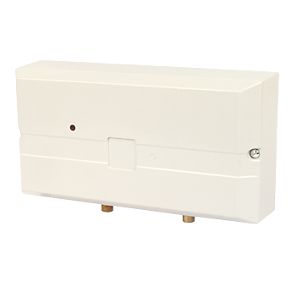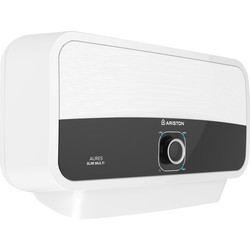I've been using an instantaneous water heater for the last 3 years; it was serving a downstairs toilet (far from the boiler) and it's a very convenient thing to have (especially in winter)

It has actually failed after 3 years, but reviews show that I've actually been lucky as that could happen much earlier
Mine started to make a strange noise like it was stuck on with no water moving through it; the water started to boil and I immediately switched it off (luckily the consumer unit is on the room next to it); removing the cover revealed a small leak and a lot of corroded bolts that seemed to have been sealing the pressure switch
As that model is hard to find, I was looking at this one;

 www.toolstation.com
www.toolstation.com
However, the reviews are also mixed, with most of them mentioning leaks starting within months or weeks from the first installation
Does anyone know why this happen and how to make it stop? Mine also had at least the first 20cm of neutral cable turning dark on the outside, while the line conductor was perfect; this made me think about something along the line of galvanic corrosion (as the neutral was permanentily connected, while the line would only be connected for the short time the heater is on)

Galaxy GX1 Unvented Instant Water Heater 9.5kW
Order online at Screwfix.com. A space saving solution for providing instant hot water from the mains supply. Supplies 2 basins or 1 basin and 1 mixer shower. Half-power setting available. For use with manual showers only. For domestic use. FREE next day delivery available, free collection in 5...
www.screwfix.com
It has actually failed after 3 years, but reviews show that I've actually been lucky as that could happen much earlier
Mine started to make a strange noise like it was stuck on with no water moving through it; the water started to boil and I immediately switched it off (luckily the consumer unit is on the room next to it); removing the cover revealed a small leak and a lot of corroded bolts that seemed to have been sealing the pressure switch
As that model is hard to find, I was looking at this one;

Ariston Aures Slim Instantaneous Water Heater
• Front-facing dial and LED indication for ease of operation• Flow sensor system initiates instantaneous water heating when a tap is opened• 4-step dial to set the desired power level• Easy to maintain with frontal access to all internal components• Complete safety thanks to its double thermal...
However, the reviews are also mixed, with most of them mentioning leaks starting within months or weeks from the first installation
Does anyone know why this happen and how to make it stop? Mine also had at least the first 20cm of neutral cable turning dark on the outside, while the line conductor was perfect; this made me think about something along the line of galvanic corrosion (as the neutral was permanentily connected, while the line would only be connected for the short time the heater is on)

